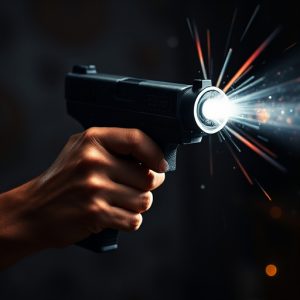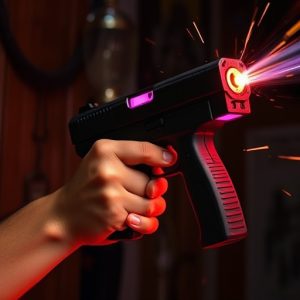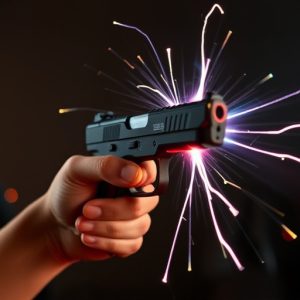Non-Lethal Weapon Training: Effectiveness of Stun Guns & Certification Benefits
Non-lethal weapon training and certification, including for stun guns, are essential for responsible…….
Non-lethal weapon training and certification, including for stun guns, are essential for responsible self-defense. While stun guns aim to incapacitate through electric shocks, they do not always knock someone out, with effectiveness varying based on individual factors. Certification programs educate users about legal implications, stun gun types, handling techniques, de-escalation strategies, and situation assessment, ensuring safe and effective deployment without causing permanent harm. Understanding the capabilities and limitations of non-lethal weapons is crucial for informed self-defense decisions.
“Explore the realm of non-lethal weapon training and certification, a crucial aspect of personal safety in today’s diverse landscape. This comprehensive guide delves into the effectiveness of stun guns—whether they truly ‘knock you out’—and highlights the benefits and considerations behind obtaining such certifications. Understanding these tools is essential for folks seeking to protect themselves and navigate challenging situations.”
- Understanding Non-Lethal Weapon Training and Certification
- The Effectiveness of Stun Guns: Does It Knock You Out?
- Benefits and Considerations for Obtaining a Non-Lethal Weapon Certification
Understanding Non-Lethal Weapon Training and Certification
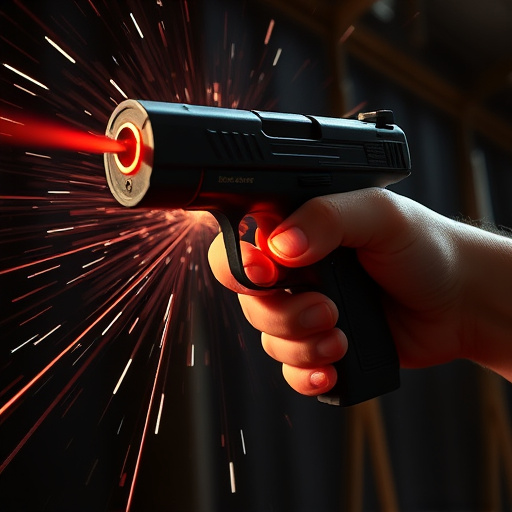
Non-lethal weapon training and certification are crucial steps for individuals looking to carry and use protective devices like stun guns. These programs aim to educate users on the safe and effective deployment of non-deadly force, ensuring that citizens can protect themselves without causing permanent harm. A common question in this context is whether a stun gun can knock someone out. While stun guns are designed to incapacitate targets through electrical impulses, putting someone into a deep sleep or knocking them unconscious is not their primary nor guaranteed effect. The intensity of the shock and its impact on an individual vary based on factors like body type, medical condition, and the specific device used.
Training programs cover various aspects, including the legal implications of using non-lethal weapons, understanding different types of stun guns and their operating mechanisms, proper handling techniques, and de-escalation strategies. Participants learn how to assess a situation and use force only as a last resort. Certification not only ensures that users are equipped with practical skills but also promotes accountability and responsible gun ownership. Understanding the capabilities and limitations of non-lethal weapons is essential for anyone considering this form of self-defense, especially when questioning if a stun gun can truly render a person incapable of fighting back.
The Effectiveness of Stun Guns: Does It Knock You Out?
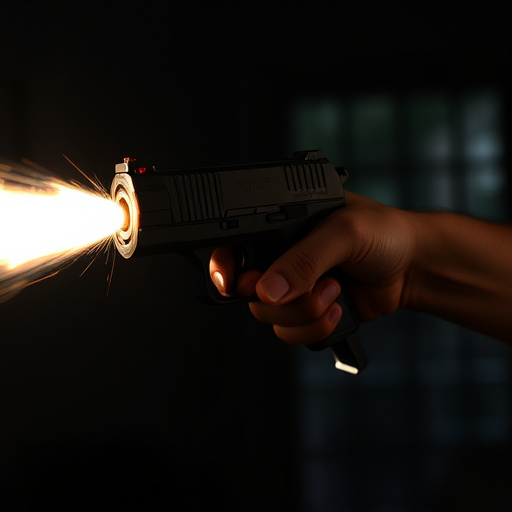
Stun guns, also known as electroshock weapons, have long been marketed as non-lethal alternatives to traditional firearms. One of the primary concerns when considering such devices is their effectiveness in incapacitating a target without causing permanent harm. A common question that arises is whether a stun gun can truly knock someone out.
The reality is, while stun guns deliver a powerful electric shock designed to disrupt muscle control and cause temporary paralysis, it is unlikely to induce unconsciousness. The severity of the shock varies depending on the device’s voltage output and contact points, but it generally lasts for a few seconds. During this time, an individual may experience intense pain, muscle spasms, and disorientation, making them unable to function properly. However, loss of consciousness is not a guaranteed outcome, and many factors can influence the effectiveness of the weapon, including the user’s physical condition, body fat percentage, and the specific stun gun model.
Benefits and Considerations for Obtaining a Non-Lethal Weapon Certification

Obtaining a non-lethal weapon certification offers numerous advantages for individuals seeking to enhance their personal safety and security. One of the primary benefits is access to tools that can incapacitate an assailant without causing permanent harm, providing users with a sense of empowerment and control in potentially dangerous situations. For instance, stun guns, a common non-lethal weapon, deliver a powerful electric shock that can temporarily disable an attacker, allowing the user time to escape or seek help.
When considering non-lethal weapon training, it’s essential to weigh the potential risks and responsibilities. While these weapons are designed to minimize harm, proper handling and understanding of their limitations are crucial. For example, a stun gun may not always knock someone out, and its effectiveness can vary based on factors like distance, body type, and weather conditions. Responsible certification programs educate individuals about safe usage, legal implications, and de-escalation techniques, ensuring they make informed decisions and use these tools effectively while adhering to local laws and regulations.
In conclusion, non-lethal weapon training certification equips individuals with valuable skills for self-defense while promoting responsible use. Understanding the effectiveness of tools like stun guns, specifically that they do not always cause loss of consciousness, is crucial. The benefits of certification outweigh considerations, making it a prudent step for those seeking to protect themselves or their loved ones without resorting to lethal force.
